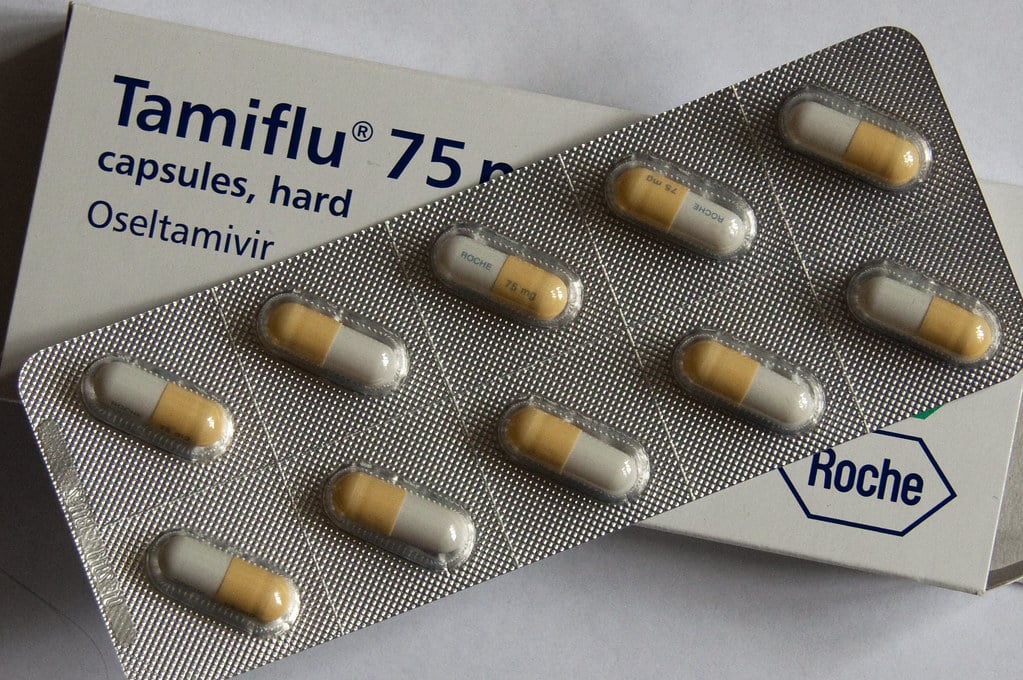The pharmaceutical company Hoffmann-La Roche allegedly defrauded the federal government out of $1.4 billion by falsely representing claims of the drug Tamiflu’s effectiveness and potential in a pandemic, according to a False Claims Act whistleblower lawsuit unsealed in September of 2019.
Responding to La Roche’s motion to dismiss the lawsuit, the whistleblower, Dr. Thomas Jefferson, alleged that the company knew Tamiflu didn’t reduce the contagiousness of influenza or prevent people from contracting it. Studies show that Tamiflu reduces the duration of symptoms by half a day on average but does not stop the flu from spreading to others during that period. This effect may increase the overall contagiousness of influenza as asymptomatic people may still be contagious.
The lawsuit alleges that La Roche fooled the government into buying tens of millions of courses of Tamiflu by misrepresenting the data on Tamiflu’s effectiveness to the federal government and the public. La Roche allegedly created a campaign to produce and publish articles in medical journals showing that Tamiflu would be useful in a pandemic. These studies convinced the government and the CDC to grant La Roche a contract to supply Tamiflu to the National Stockpile. Under the False Claims Act, a company that defrauds the government must pay triple the amount of money misappropriated or defrauded, not including individual fees and fines for each proven infraction. If found guilty, La Roche could have to pay upwards of $4.5 billion.
False Claims Act whistleblowers, or qui tam relators such as Dr. Jefferson, can earn rewards of 15 to 30% of the funds recovered by the federal government. Cases like this one are perfect examples of how effective the False Claims Act is at uncovering fraud and deception against the federal government and taxpayers.
